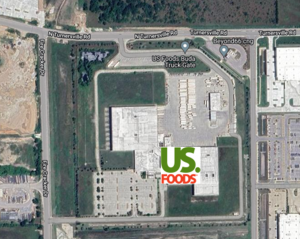By Andy Sevilla
While Kyle and Buda have laws in place regulating peddlers’ and solicitors’ activities in each city, some door-to-door salesmen fail to acquire the proper permitting to conduct business in those cities.
Ordinances in both cities explicitly require door-to-door solicitors to obtain a permit from the respective local government where they plan to do business.
“We check applicants to ensure they don’t have any warrants, active protective orders or recent felony convictions (all of which could disqualify them from acquiring a permit),” Buda Police Chief Bo Kidd said.
Kyle city officials said in a statement that although solicitors often are legitimately representing their business, homeowners should remain wary when strangers show up knocking.
“Residents are advised to ask to see (the city) permit and to not conduct business with anyone not in possession of the proper permit,” the statement said.
Door-to-door solicitors often offer deals on magazines, energy audits and cookies, or present opportunities to sign petitions, to name a few practices. They can be persistent and tough to shake, but officials warn that if you do not know them, then say ‘no thank you’ through the door and walk away.
Kyle officials warn homeowners to refrain from opening the door to someone they don’t know, teach children what to do if they’re home alone and someone comes to the residence or is looking in the windows, and advise residents to not engage solicitors in conversation of any kind, as it only encourages the door-to-door peddlers to stay.
If a solicitor does not peaceably go on their way after a homeowner declines their solicitation, Kyle officials say it’s time to call the cops.
“Watch where the solicitor goes next and notice what they do,” the city statement advises. “Look for suspicious behavior such looking in car windows, testing doors for locks, or entering back yards.”
Kyle resident Josh Jurek said a man was going door-to-door in his neighborhood near the library asking homeowners to purchase home invasion equipment. Jurek told the Hays Free Press via a Facebook message that the man had Utah state license plates on his car and claimed to work for GE.
While it is unclear if the solicitor in that case was permitted by the city, Kyle officials ask residents to alert their neighbors or neighborhood watch groups when they spot a suspected suspicious solicitor.
Chief Kidd said his department received about a dozen calls over the last year complaining about solicitors.
“When we get calls, the officers make contact, advise them a permit is required and if we get any more calls then there would be a citation issued,” Kidd said. “That generally gets them to move outside the city.”
Kidd said that while very few solicitors actually obtain a permit in Buda, his department has not written any citations at this point. A solicitation offense is a Class C Misdemeanor and could call for a fine up to $500.
“The main purpose or goal of our ordinance is to know who is soliciting in our city and ensuring that they work for a legitimate company,” Kidd said.
Texas law allows licensed alarm companies and insurance companies to be exempt from requiring a solicitor’s permit. While local law enforcement cannot enforce their respective city’s ordinance on licensed alarm and insurance companies, property owners could still have “no trespassing” and “no solicitation” signs on their properties; if those vendors violate that, officers could apprehend them, Kyle officials said.
“A ‘no solicitation’ sign posted at the entrance of a neighborhood is not enforceable by the police department; individual signs at a residence can be enforced.”









